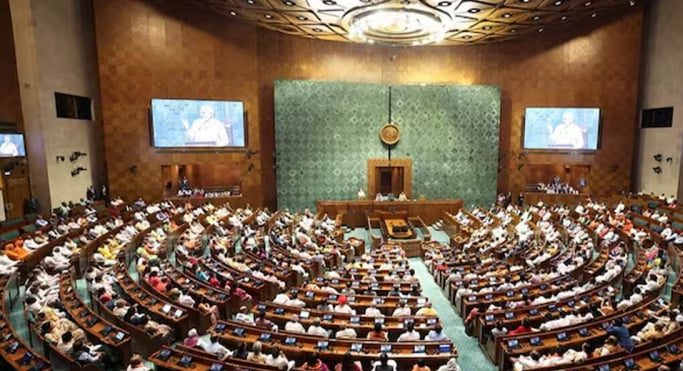
The demand for one country, one election has been going on for a long time and this bill has been introduced in the Parliament. Its objective is to hold Lok Sabha and Assembly elections simultaneously in the entire country. Who will benefit from this, how much time will it take, how will it be implemented? Know everything…
One Nation, One Election Bill has been introduced in Parliament on Tuesday. The Modi government approved this bill in the cabinet meeting and after this the bill was presented in the Parliament. The bill will now be sent to the JPC, after the agreement on the bill, Lok Sabha and Assembly elections will be held simultaneously across the country. This will reduce election expenses and administrative burden which will be in the national interest. Lok Sabha and Assembly elections are held at different times, which poses many challenges. If elections are held simultaneously, then the election expenses will be incurred only once, which will save money and time, people will benefit and the country will benefit.
The path to passing this bill will not be easy
The biggest challenge of the One Nation One Election Bill is that if this bill is passed by the Parliament and becomes a law, it will take at least 10 years to be implemented. The biggest obstacle in the way of its becoming a law may be that to pass the bill in Parliament, the government will have to get two-thirds majority in both the houses and will also have to take the approval of at least 15 state assemblies. After approval, the law will be made and implemented with the signature of the President. In such a situation it will take a lot of time.
Not only this, after the law is made, it has to be implemented in several stages. The Election Commission will require a large number of EVMs and VVPATs, the manufacturing and testing of which will take a long time, hence the long wait.
How will the bill be implemented, how much time will it take?
It is important to know how it will be implemented, after the bill is introduced and approved, first of all constitutional amendment is necessary to implement it. Under this, changes are to be made in five main articles of the Constitution – Articles 83, 85, 172, 174 and 356. These articles of the Constitution relate to the tenure of the Lok Sabha and the Legislative Assembly and the power to dissolve President’s rule.
If we talk about the time taken for this bill to become a law, then even if it is passed without any changes, it may take 10 years to be fully implemented. This is because the tenure of the current Lok Sabha will end in 2029 and will be notified during the first session of the elected Lok Sabha thereafter. So in this case it will definitely take 10 years. According to the Election Commission, it will take at least three years to arrange for EVMs and other resources required for holding simultaneous elections. Thus, if action is taken hastily, technical and administrative lapses may occur.
can’t be hasty
In this regard, the Election Commission says that conducting simultaneous elections in a big democratic country like India will require intensive planning and preparation. The Election Commission has suggested that it will not be possible to implement One Nation One Election in a hurry. For this process, EVM manufacturing companies will have to develop large production capacity, which is limited at present.
matter of protest
BJP has called One Nation One Election a step to strengthen democracy, while Congress has opposed it and called it against democratic values. Congress President Mallikarjun Kharge said that in a democracy, the need for elections keeps changing with time, in such a situation it is not practical to keep everyone together. In such a situation, the government may have to face many difficulties in presenting this bill and getting its draft.
 look news india
look news india